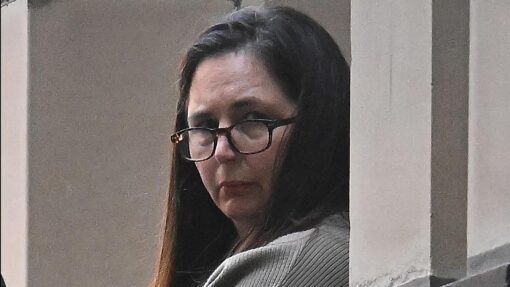Woman who brought down robodebt tells of debt terror
Andrew Brown |
The woman whose legal case led to the robodebt scheme being ruled as unlawful has told a royal commission of her fear of being landed with debt.
The royal commission examining robodebt heard on Friday from Deanna Amato, who was issued with a $2500 Centrelink debt notice.
Ms Amato challenged the debt in court, which led to the federal government settling the case because the debt notice relied on income averaging, which was unlawful.
She said she first found out about her debt after long delays in receiving her tax return, with the entire amount then used to go towards the debt.
“It was pretty shocking and scary finding out I had a debt,” Ms Amato told the commission.
“They had taken my whole tax return to the cent, to me that indicated that I owed more money than that, which was quite scary.”
The subsequent legal challenge to the debt notice was viewed as a test case of the legality of the robodebt scheme, which used ATO data to average income to calculate debt notices.
Ms Amato said she was anxious going to court but she said it was clear where the government departments had made mistakes.
“Seeing the documents for myself it seemed really obvious where the mistake happened and I just felt like I was in the right place to do it because it was just so obvious,” she said.
“It was really obvious that they’d averaged out over the whole year, rather than the six months I was actually only claiming Austudy.”
The commission also heard requests for legal assistance on social security issues increased 500 per cent in January 2017, during the early days of the robodebt scheme.
Acting chief executive of Victoria Legal Aid Rowan McRae said that during the first seven days of that month as many people came to the service for advice as in all of January the year before.
Earlier on Friday, the commission was told the proposal taken to cabinet outlining details of robodebt in 2015 did not include information on income averaging.
The former general manager in the Department of Human Services, Mark Withnell, told the commission on Friday he tried to tell senior officials within the department the use of averaging to calculate debt would not be supported by other agencies overseeing the scheme.
Mr Withnell said despite his comments, the then-deputy secretary of the department, Malisa Golightly, still wanted the scheme to go ahead.
“I spent some time talking with Ms Golightly to convince her that the use of income averaging would not be supported by (the Department of Social Services) and that it was probably inappropriate to continue with that.
“She was very keen on the measures still proceeding.”
The former manager said he suggested alternatives to reach out to those on welfare who the department suspected of having debts to the government.
“The critical issue for me was about getting people to reconcile the information (about the debt),” Mr Withnell said.
“That reconciliation of information would still allow us to proceed, but that using the ATO data in the way that had been suggested would not be acceptable to DSS and wasn’t an acceptable process.”
When questioned why estimates for budget savings being recovered would be the same even if averaging wasn’t used, Mr Withnell said he did not know.
He indicated it would be up to the Department of Social Services to calculate the costings.
AAP


